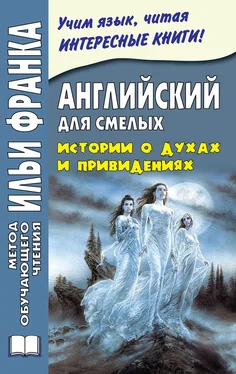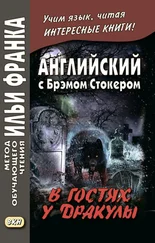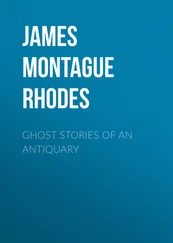Dr Teesdale instantly got up, put the receiver to his ear(доктор Тисдейл немедленно встал и приложил трубку к уху; receiver – получатель; телефонная трубка; to receive – получать ) . And what he heard was heart-broken sobbing(то, что он услышал, было душераздирающим рыданием; heart-broken – убитый горем; с разбитым сердцем; to sob – рыдать; всхлипывать ) , strong spasms that seemed to tear the weeper(спазматический плач, который, казалось, сотрясает плачущего; spasm – спазм, судорога, конвульсия; to tear – рвать, разрывать ).
He waited for a little before speaking(прежде чем заговорить, он подождал немного) , himself cold with some nameless fear(сам похолодев: «сам холодный» от какого-то невыразимого ужаса; nameless – безымянный; невыразимый; несказанный ) , and yet profoundly moved to help, if he was able(и все же полный искреннего стремления помочь, если он был в состоянии /это сделать/; profoundly – глубоко, сильно; to move – зд.: побуждать ).
‘Yes, yes,’ he said at length, hearing his own voice tremble(да, да, – сказал он наконец, слыша, как дрожит его собственный голос) . ‘I am Dr Teesdale(я доктор Тисдейл) . What can I do for you(чем я могу вам помочь) ? And who are you(и кто вы) ?’ he added, though he felt that it was a needless question(добавил он, хотя и чувствовал, что вопрос был излишним; need – нужда ).
Slowly the sobbing died down(постепенно рыдания стихли) , the whispers took its place, still broken by crying(уступив место шепоту: «шепот занял их место», все еще прерываемому плачем).
‘I want to tell, sir – I want to tell – I must tell(я хочу рассказать, сэр… я хочу рассказать… я должен рассказать) .’
‘Yes, tell me, what is it(да, расскажите мне, в чем дело) ?’ said the doctor.
‘No, not you – another gentleman, who used to come to see me(нет, не вам – другому джентльмену, который посещал меня: «который обычно приходил повидать меня») . Will you speak to him what I say to you(вы передадите: «скажете» ему то, что я говорю вам)? – I can’t make him hear me or see me(я не могу заставить его услышать или увидеть меня) .’

 Dr Teesdale instantly got up, put the receiver to his ear. And what he heard was heart-broken sobbing, strong spasms that seemed to tear the weeper.
Dr Teesdale instantly got up, put the receiver to his ear. And what he heard was heart-broken sobbing, strong spasms that seemed to tear the weeper.
He waited for a little before speaking, himself cold with some nameless fear, and yet profoundly moved to help, if he was able.
‘Yes, yes,’ he said at length, hearing his own voice tremble. ‘I am Dr Teesdale. What can I do for you? And who are you?’ he added, though he felt that it was a needless question.
Slowly the sobbing died down, the whispers took its place, still broken by crying.
‘I want to tell, sir – I want to tell – I must tell.’
‘Yes, tell me, what is it?’ said the doctor.
‘No, not you – another gentleman, who used to come to see me. Will you speak to him what I say to you? – I can’t make him hear me or see me.’
‘Who are you?’ asked Dr Teesdale suddenly(кто вы? – внезапно спросил доктор Тисдейл).
‘Charles Linkworth(Чарльз Линкворт) . I thought you knew(я думал, что вы знаете) . I am very miserable(я очень несчастен) . I can’t leave the prison – and it is cold(я не могу покинуть тюрьму – и /тут/ так холодно) . Will you send for the other gentleman(вы позовете того другого джентльмена; to send for smb. – посылать за кем-либо; вызывать, приглашать ) ?’
‘Do you mean the chaplain(вы имеете в виду священника) ?’ asked Dr Teesdale.
‘Yes, the chaplain(да, священника) . He read the service when I went across the yard yesterday(он отправлял богослужение, когда я проходил по двору вчера; to read – читать; оглашать; service = religious service – служба, церковное богослужение ) . I shan’t be so miserable when I have told(я не буду так несчастен, когда все расскажу) .’
The doctor hesitated a moment(доктор мгновение колебался) . This was a strange story that he would have to tell Mr Dawkins, the prison chaplain(ему придется рассказать мистеру Докинсу, тюремному священнику, странную историю) , that at the other end of the telephone was the spirit of the man executed yesterday(что на другом конце телефонной линии была душа человека, казненного вчера) . And yet he soberly believed that it was so(и все же он верил – и полагал при этом, что он в здравом уме, – что это так и было; soberly – рассудительный; благоразумный, здравый; sober – трезвый ) , that this unhappy spirit was in misery and wanted to ‘tell’(что эта несчастная душа страдала и хотела «рассказать»; misery – страдание ) . There was no need to ask what he wanted to tell(не было необходимости спрашивать, что он хотел рассказать).

 ‘Who are you?’ asked Dr Teesdale suddenly.
‘Who are you?’ asked Dr Teesdale suddenly.
‘Charles Linkworth. I thought you knew. I am very miserable. I can’t leave the prison – and it is cold. Will you send for the other gentleman?’
‘Do you mean the chaplain?’ asked Dr Teesdale.
‘Yes, the chaplain. He read the service when I went across the yard yesterday. I shan’t be so miserable when I have told.’
Читать дальше
Конец ознакомительного отрывка
Купить книгу


 Dr Teesdale instantly got up, put the receiver to his ear. And what he heard was heart-broken sobbing, strong spasms that seemed to tear the weeper.
Dr Teesdale instantly got up, put the receiver to his ear. And what he heard was heart-broken sobbing, strong spasms that seemed to tear the weeper.










